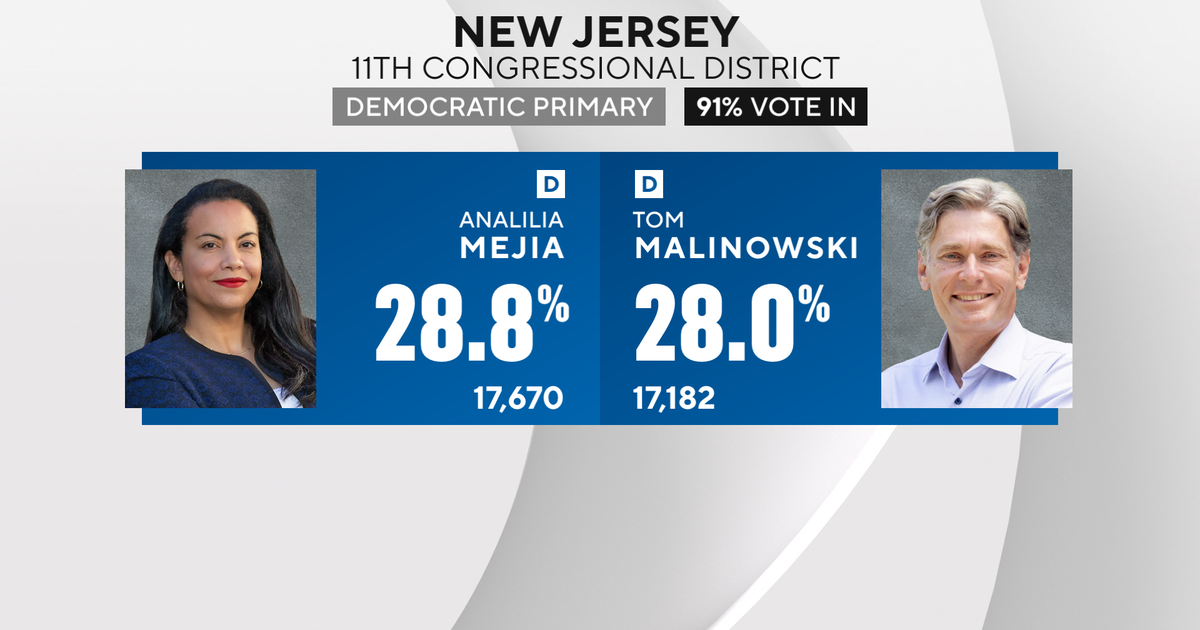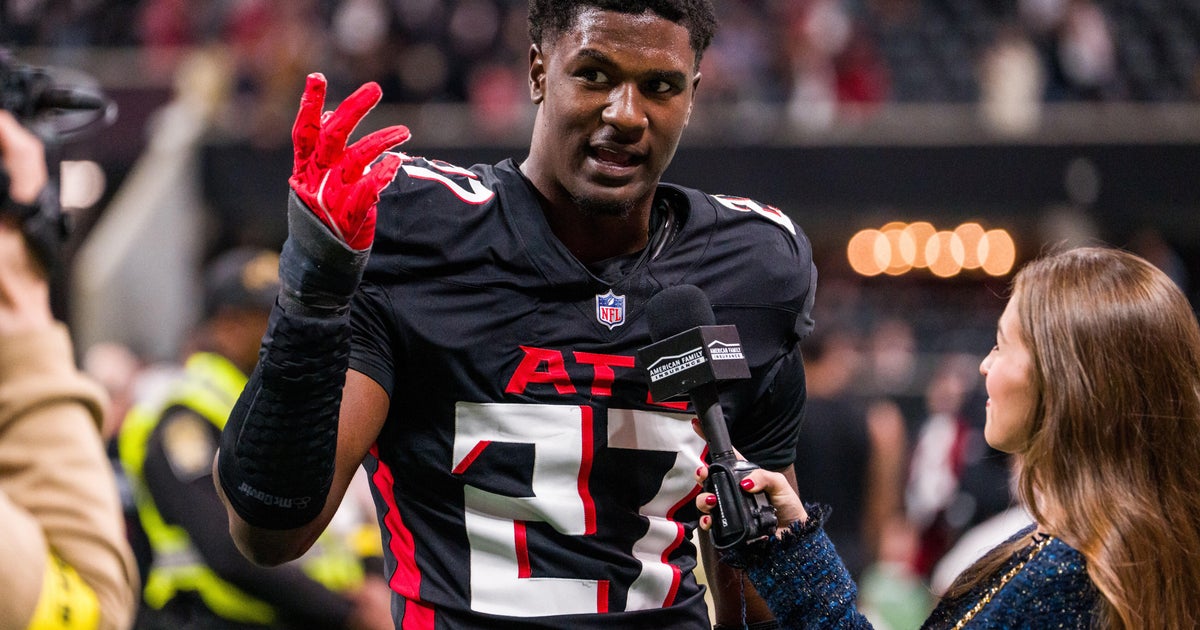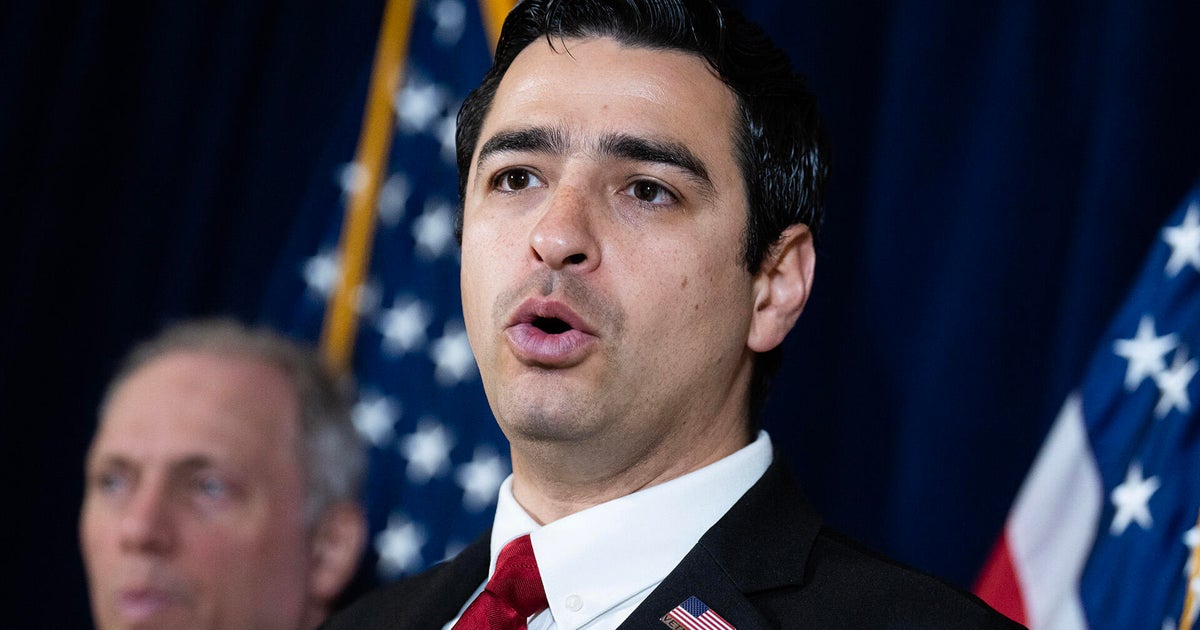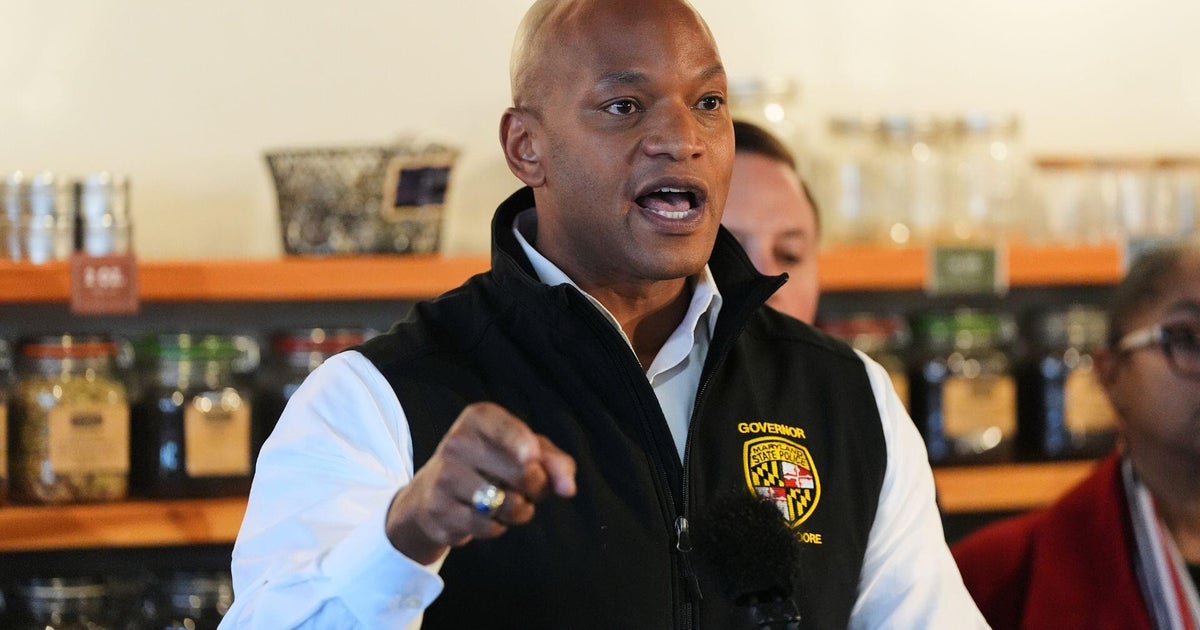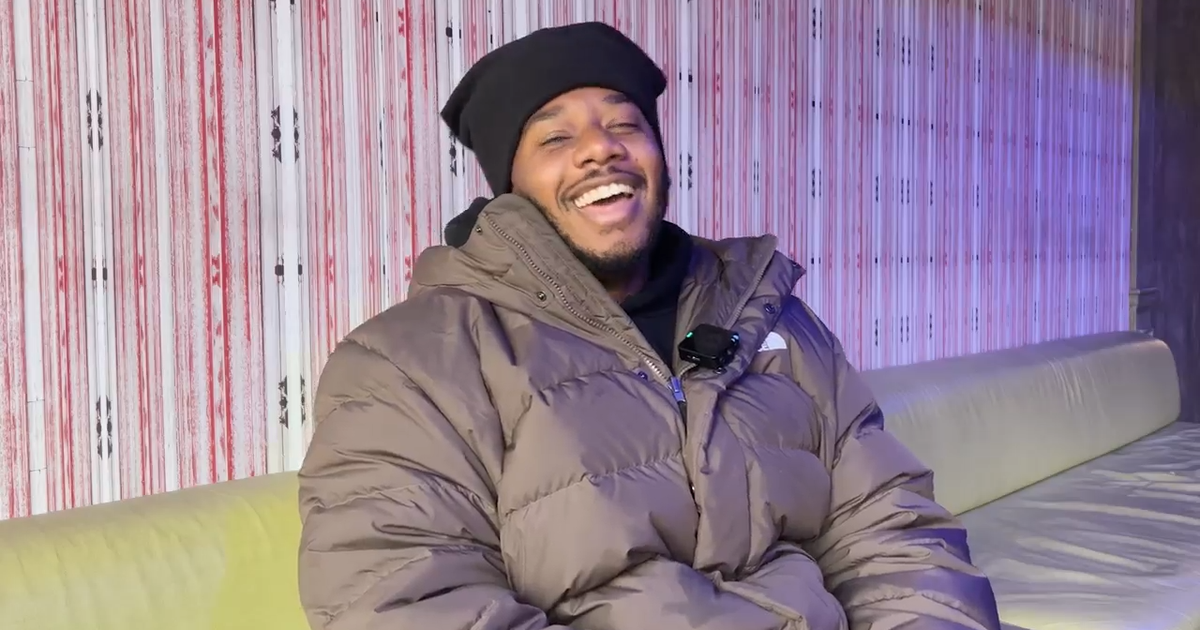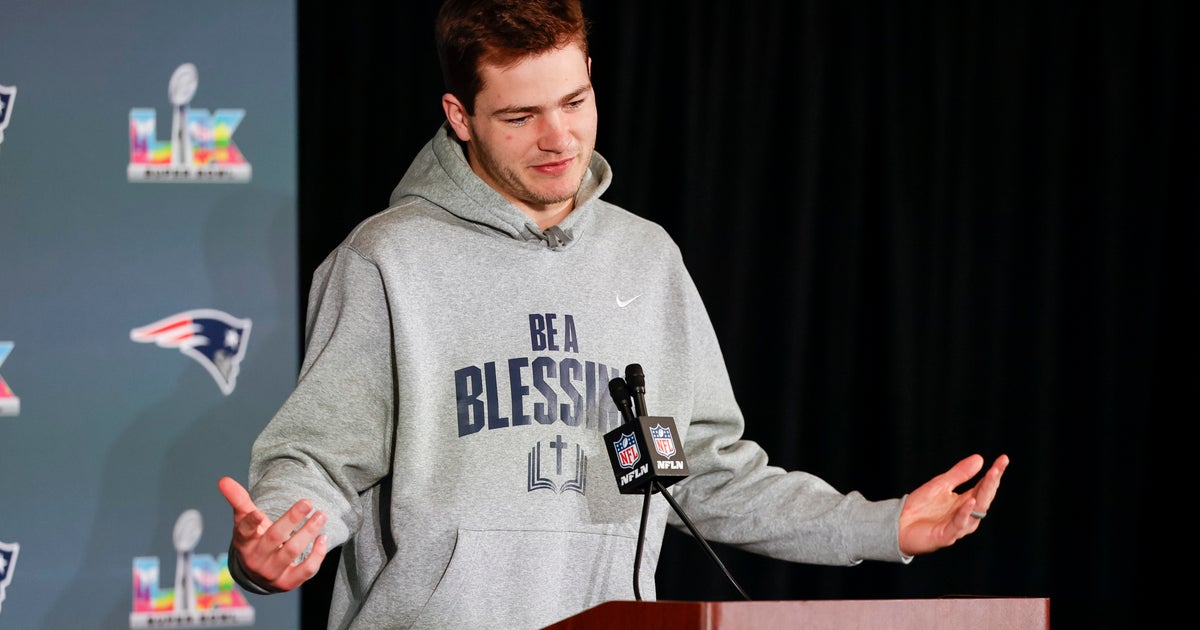Top Polling Democrats Set To Square Off In Night Two Of Primary Debate
MIAMI (CBSMiami/CNN) – Former Vice President Joe Biden, Vermont Senator Bernie Sanders, and California Senator Kamala Harris are 3 of the biggest names in Thursday's Democratic presidential debate in Miami.
They also represent different perspectives on critical issues like healthcare and the economy. With these big, well-known personalities on the stage it could be a challenge for other candidates to shine through. That's the challenge facing lesser-known candidates like California Congressman Eric Swalwell, who is aiming to introduce himself to voters on Thursday night.
"I'm the only candidate who has a plan that would've prevented Parkland with a ban and buyback of every single assault weapon in America," Swalwell said.
Swalwell said he's focused on his plan to reduce gun violence and wants voters to see him as fresh voice in the Democratic Party.
CBS4'S JIM DEFEDE ON WHAT TO EXPECT FROM 2ND DEM DEBATE:
"I'm submitting to the country tonight that if we want to make on these issues of climate, student loan debt, health care costs, gun violence, let's look forward," Swalwell said. "That's the best way to win."
Swalwell can look to former San Antonio Mayor and former Housing Secretary Julian Castro's performance in Wednesday's debate as inspiration. Experts believe Castro was one of the clear winners in the debate, offering clear answers on issues like immigration.
"If I were president today I would sign an executive order that would get rid of President Trump's no tolerance policy," Castro said.
Castro even took on fellow Texan and former Congressman Beto O'Rourke over Castro's desire to make crossing the border illegally a civil matter rather than a criminal one. It was a memorable moment in the 2-hour debate.
"If you did your homework on this issue," Castro said to O'Rourke, "you would know that we should repeal this section."
Castro clearly benefited from the debate. Twitter said he was the 3rd most talked about candidate behind Warren and Booker and Castro said on Thursday that the debate led to his best fundraising night of the campaign.
"If I'm the nominee we'll see unprecedented gains in the Hispanic vote," he said. "It will go through the roof."
Dr. Susan MacManus is Professor Emerita of political science at the University of South Florida. She expects Thursday's debate between some of the front-running candidates to quickly focus on differences on issues rather than on introductions.
"It probably will be much more competitive and a bit more combative early on than it was last night simply because some of them are so well known," MacManus said.
Like Wednesday, the candidates will likely spar over immigration, healthcare, the economy and many of the policies of President Trump's administration. Political experts say the debate field for Thursday will show a diversity of candidates…and show how Democrats are trying to bridge a gap between progressive and moderate wings of the party.
"You're going to see the impact of different ages, different races and ethnicities, certainly ideology, a lot of the ideological differences are split the young people and the old. This is sort of a generational battle tonight in a way," MacManus said.
MacManus also expects the candidates tonight to be asked about the major Supreme Court decisions today on gerrymandering in North Carolina and the citizenship question on the census.
Here's a guide to what the Thursday night's candidates could seek to accomplish:
Former Vice President Joe Biden
At center stage is the Democratic front-runner in national and early-state polls. Biden has focused on proving he can take on Trump, emphasizing his campaign's belief that voters are looking for the most electable candidate. And unlike many of those who will be on stage Thursday night, Biden doesn't have to introduce himself to voters -- he's already universally known after eight years as former President Barack Obama's vice president.
But that effort to stay above the fray and out of intra-party divisions -- as well as his decision not to take questions publicly at most campaign events -- means he hasn't yet shown he is prepared for the sort of onslaught from progressives that could await the former vice president in the debates.
An important dynamic the first two months of Biden's campaign have revealed is his simmering anger over the criticism he's faced to date. He's joked about having permission to hug women after being accused of groping; he lashed out at New Jersey Sen. Cory Booker when Booker first called on Biden to apologize for his comments about "civility" with segregationist senators; when a reporter pressed him on why he'd reversed his position on the Hyde Amendment within 36 hours, Biden shot back, "don't be a wise guy with me."
It's raised questions about how Biden will handle being a punching bag -- if that's what his Democratic opponents decide to make him -- on the debate stage as he tries to stay above the fray.
Vermont Sen. Bernie Sanders
It's clear that Sanders is eager to differentiate himself from Biden. What's less clear is how he will handle other moderates -- including the two candidates from Colorado -- who are likely to assail Sanders' own brand of progressivism, and others who are making generation-change arguments.
Because Warren is on Wednesday night's stage instead of Thursday's, the battle for the progressive wing of the party will have to wait. The challenge for Sanders on Thursday night is to stay on offense and demonstrate that his ideas are the party's future, rather than finding himself on defense, fending off several foes at once.
South Bend Mayor Pete Buttigieg
The executive of Indiana's fourth-largest city arrives on the heels of controversy over the police shooting of a black man in his city, and the politics around how he handles it moving forward could be more important to his long-term viability than Thursday night's debate.
Buttigieg has leaned into a message of generational change, and he's positioned just to viewers' left of two septuagenarians in Biden and Sanders. That's the contrast he'll want viewers to hear -- and, perhaps more importantly, see.
California Sen. Kamala Harris
It's easy for those who are closely following the Democratic race to forget that much of America is still only vaguely familiar with Harris, the former California attorney general whose prosecutorial history is at the center of her campaign, with her promises to "prosecute the case" against Trump and her "for the people" slogan.
Right now, polls have shown Biden as the overwhelming favorite of black voters, particularly in South Carolina, an early-primary state. Harris' style hasn't been to attack other Democrats frequently, and if she isn't engaging with other candidates, she'll need to find ways to make sure she isn't forgotten. But her performances on the Senate Judiciary Committee have led to expectations she will be a formidable presence, and her path to the nomination likely requires chipping away at Biden's support.
New York Sen. Kirsten Gillibrand
Along with her close friend New Jersey Sen. Cory Booker, Gillibrand is a big-state senator with fundraising prowess who hasn't yet managed to become a real factor in the 2020 race.
Abortion rights could be the issue Gillibrand uses to change that. She's built a political identity around supporting female candidates and advocating for women's rights -- including abortion rights and combating military sexual assault. She needs to find an opening for a breakout, and with Biden on defense over his Hyde Amendment reversal, that could be where Gillibrand pounces.
Colorado Sen. Michael Bennet
Biden might not punch Sanders back, but Bennet has shown a willingness to attack the Vermont senator. Bennet entered the race by saying on CNN that advocates for Medicare for All need to "level with the American people" and has shown no signs of letting up ahead of Thursday night's debate.
Bennet offers a brand of politics unlike others in the race: fiery centrism. He rails as much against Senate Majority Leader Mitch McConnell as he does against Trump. That approach could help him emerge from a pack of low-polling centrist candidates if Biden falters -- but several other little-known candidates in the race will be fighting for the same chance to emerge as a moderate alternative.
California Rep. Eric Swalwell
His political identity is pegged largely to his strident advocacy for gun control measures. He has called for a buy-back program for assault rifles that would put those who didn't sell back their automatic weapons in jail. That's the issue on which Swalwell could seek to differentiate himself from his opponents.
Swalwell has several go-to lines he leans on -- some of which elicit as many groans as they do cheers in person. One of his favorites: Calling the Democratic presidential field "the Avengers" compared to the GOP's "Hunger Games." If he uses them, it'll gauge whether the audience is willing to give candidates any credit for canned lines.
Marianne Williamson
The self-help guru's stump speech paints a picture of a dark and dystopian country under Trump. She hasn't created any waves in the race so far and is almost certain to be ignored by other Democrats, giving Williamson an opening to explain to viewers why she's running -- and why, as a political novice, she should be taken seriously. Doing so could help her move ahead of the bottom half of the field, where candidates are registering next to no support in the polls.
Former Colorado Gov. John Hickenlooper
One of the race's moderate voices, Hickenlooper has to prove he's better than the race's other low-polling candidates.
He's most likely to criticize Sanders, but Hickenlooper could be willing to take on anyone: He has laid blame for Democrats' move leftward on policy matters on the entire 2020 field of candidates, saying in a speech two weeks ago that the party's contenders have "not only failed to oppose Sen. Sanders' agenda, but they have actually pushed to embrace it."
Andrew Yang
His online cult following has rallied behind the entrepreneur who describes himself as the opposite of Trump: "an Asian guy who likes math." And he's shown irreverence, poking fun at Biden for missing a gathering in Iowa and then walking around a stage whipping supporters up like a professional wrestler while being introduced at South Carolina Rep. Jim Clyburn's fish fry this month.
Yang's online army will carry him deep into the Democratic race. His challenge is like Williamson's: In an election in which Democratic voters are desperate to defeat Trump and uneasy about nominating a political novice, he needs to demonstrate to the broader electorate why he should be taken seriously.
(©2019 CBS Broadcasting Inc. All Rights Reserved. Cable News Network, Inc., a Time Warner Company, contributed to this report.)
